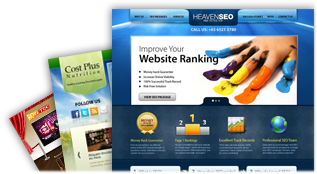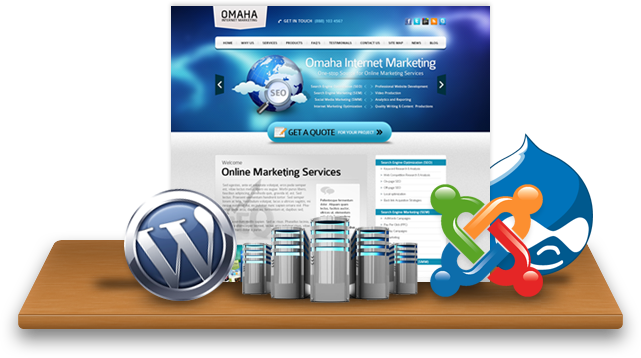
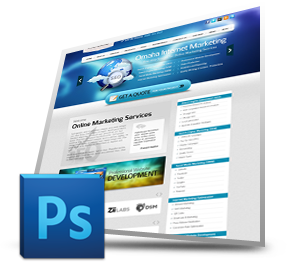
Responsive Designs
As more and more people visit websites through their feature phones, Smartphones, tablets, PDAs and other hand-held devices, it has become necessary to create websites specifically for these hand-held devices. Regular websites can be viewed on hand-held devices, but they load slowly, they look bad, and they are generally not user friendly.
There are two basic methods of making websites for hand-held devices. You could design a mobile website using such coding standards as xHTML or you could do responsive Web design. A mobile website is a stand-alone website that is usually a slacked back, slimmed down, subset of what is found on the regular site. The technology used is designed for detection by mobile Web browsers only. You could incorporate a feature that allows a person viewing the mobile website to view the desktop version of the website on the same hand-held device.
A responsive design website is a website that has been designed using responsive Web design or RWD. With RWD, a website is designed in such a way that it responds to the characteristic of the device where it is being viewed. As an example, the website will expand as you move from a Smartphone to a laptop.
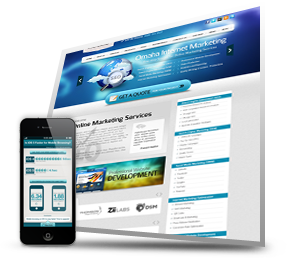
Mobile-enabled Websites
The best way to understand the difference between Responsive and Mobile-enabled websites is to consider the merits and demerits of each option.
The greatest advantage of a mobile web site is that you will be able to customize the content and the appearance. This is important because what mobile users want is not usually what desktop users want. These sites feature an instant call button that allows you to call the contact number of the site you are visiting. You will have instant access to the customer support team. You get fast loading time and simplified navigation that is designed for ‘thumb users’.
The greatest disadvantage is that you will have to manage 2 sets of content. You have to revisit the design and cell phone technology changes regularly.
As a general rule, we feel the advantages of Responsive websites tip the tables in their favor, and it is 'usualy' what we propose to our clients.
Is Your website Mobile-friendly?
Try this Google Mobile-friendly Test Tool to see how Google views your site!
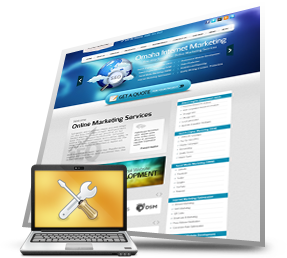
Content Management Systems
Your website content needs to be properly managed. This is the work that is done by a content management system. This system consists of two elements; one that creates, modifies and removes content from a website, the content management application and the other that updates the website, that is, the content delivery application.
There are certain features which are common in most content management systems. For instance, most of them have a web based publishing feature which allows users to create and modify content using a template. Other features like indexing, search and retrieval of content can be found on most popular CMS. You need to consider your organizational needs before choosing a CMS. To help you understand these content management systems better, let’s take a look at 5 common examples.

eCommerce Websites
eCommerce websites represent another type of website that is geared towards client transactions and selling products or services online.
The added complexity, maintenance and operational requirements of a popular eCommerce website are quite different from a 'standard' business website.
For this reason we prefer to speak with you personally about your eCommerce web site needs.
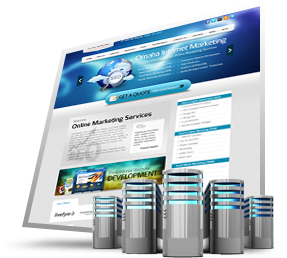
Website Hosting
Are you looking for the right operating system platform to host your website? There are basically two major website hosting platforms to choose from. These are Windows and Unix. The two platforms are quite popular among many web developers because they present a lot of capabilities and challenges in their own right.
For a start, you need to understand that the operating system that is running on your computer doesn’t affect the website hosting platform that you are going to choose. You may be running a Mac on your computer and still be free to use Unix as your operating system platform. It is more important to understand the kind of hosting platform that you need based on the features it has to offer.
However, one of the things that may affect your choice of website hosting platform is the kind of programming language that was used to implement your website. Unix is mostly used when the website was implemented using Perl, PHP4 and MySQL whereas Windows is preferred in cases where ASP, ASP.NET or Microsoft MS SQL was used.
The website hosting platform will also depend on the kind of website that you need. For instance, if you need a dynamic site which utilizes PHP or MySQL, then Linux would be the most suitable solution. The website hosting platform you choose should be able to accommodate future changes in the organization. Choose a platform that will easily adapt to your growing demands.
Compatibility issues also affect your choice of website hosting platforms. For instance, if you are going for Linux, you would prefer the LAMP technology that contains all the components required to come up with dynamic web applications. Find out if the server can be hosted on different platforms depending on the kind of programming that has been used to implement the site.
You also need to find out how much it will cost you to obtain the server hosting. Unix or Linux systems are usually free to download, install and operate. However, if you prefer Windows hosting, be ready to pay for licenses. You can choose Unix platform if it has all the features you need to develop your site. However, if you feel that you will benefit from the extra features offered by Windows platform then be ready to make that investment. In the long run, both website hosting platforms provide reliable and convenient web servers.
We take the web hosting worries away because we only use Top Tier Hosting Services when you host your website(s) with us.
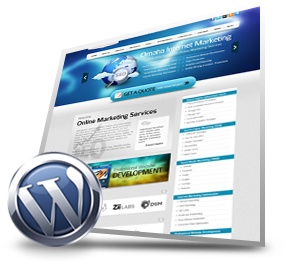
WordPress
Wordpress is arguably the most popular CMS. It is easy to access and has a quick installation process. You can get a vast number of plugins with this CMS and it also has an easy PHP and CSS file for novice and experienced web users. Wordpress is mainly used for creating personal blogs but it can also be used for e commerce websites.
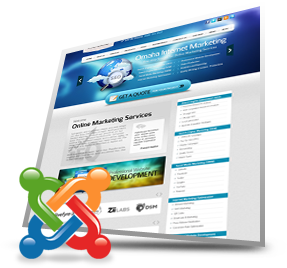
Joomla
Another popular CMS is Joomla. Joomla is basically one of the most customizable CMS you will ever come across. It is very suitable for small businesses and large scale organizations because it is easy to use and has a wide array of templates and styles.
Although Joomla is a fine CMS, we will usually steer our clients towards WordPress unless they already have a strong Joomla staff.
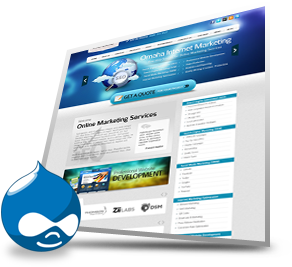
Drupal
Drupal is another somewhat popular CMS. It is free and open-source and written in PHP. Drupal includes the basic user functionality of many CMS's and has a wide ranging host of add-on modules.
We generally do not recommend Drupal because WordPress is our CMS of choice.
Would you like a professional website, or need help with SEO?
Write to us with your project details and we will get back to you shortly.

